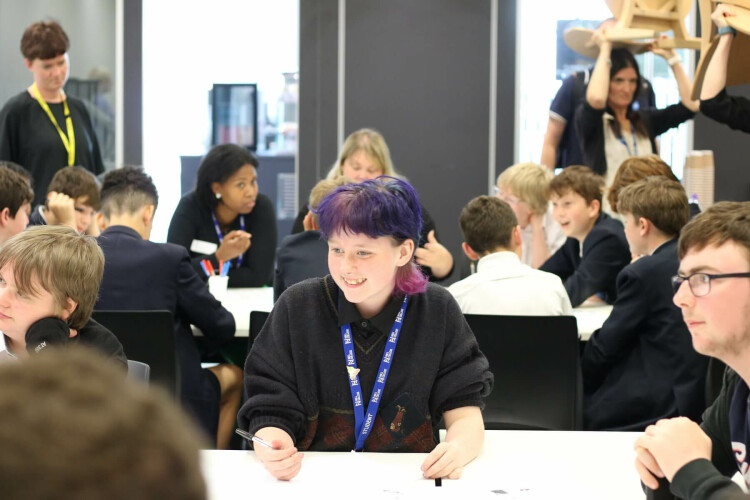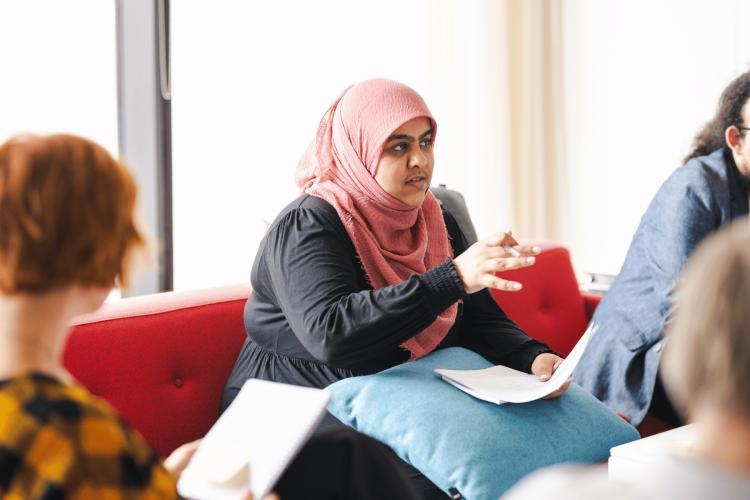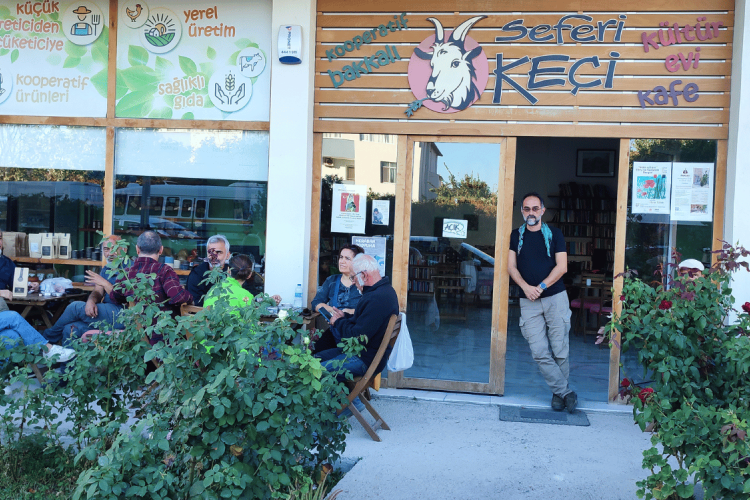Global press freedom has fallen to a record low, but working with journalists around the world has given me hope.
Imagine a world where the only information you have access to comes from those in power. Although this sounds like something out of Orwell’s 1984, where facts are denied, rewritten and falsified, this is the reality in a number of countries around the world.
Independent media and journalists are facing a host of threats, including those in democratic countries. It may be too early to say what the impact of the recent cuts to international aid will be. However, we know that the suspension of USAid includes £216m that was allocated to supporting “independent media and the free flow of information”. That’s 6,200 journalists and 707 non-state news outlets that could cease to exist in more than 30 countries.
That’s 6,200 journalists and 707 non-state news outlets that could cease to exist in more than 30 countries.
This is leaving a vacuum in which disinformation and propaganda thrives. Repressive regimes are becoming increasingly hostile to any media that is there to hold them to account. Whether it is using “misinformation” laws, capturing media regulators or using advertising budgets to influence coverage, they are finding creative and effective ways to silence critical voices.
Simultaneously, the move to digital means that previous business models are no longer fit for purpose. Print is declining, advertising income can be fickle, and finding an audience that will stay with an outlet regardless of changes to algorithms and platforms is a constant effort. This was already a challenge before the emergence of generative AI, which has the potential of either being the making or breaking of media organisations, depending on how it is implemented.
In my 7 years delivering projects that support independent media, the pressures have never felt so great. But working with journalists and media professionals around the world gives me an enormous amount of hope, as have the models of support that we’ve tried, tested and developed. In that time, one of the key things we’ve seen is that money, although not everything, really does matter. In the face of resistance, media organisations that have diverse revenue streams, good management of staff and a solid strategy are more likely to be able to keep reporting, keep inspiring their audiences and keep telling the stories that matter.
Over the years, and through rigorous evaluation, we've learnt that long term, relationship-based support can effectively equip journalists with a diverse set of skills, enabling them to succeed in a challenging media landscape. We've seen journalists launch new initiatives, secure further grant funding, improve the quality of their content and increase audience engagement. We've identified mentorship as a key component, as it has helped participants secure funding, increase their visibility and achieve project milestones. Knowledge exchange opportunities have equipped participants with applicable strategies, practical knowledge and a renewed sense of purpose in their work.

Our evaluations have given us the confidence that we are making a lasting difference to people, but it is seeing the impact that the work has had first hand that fills me with hope and makes me feel like my job is worth doing. We can prove that there are solutions to our current challenges but, as a charity, we need support to take our programme to the places and people that are struggling to get the resources they need.
This world press freedom day, we must recognise the importance of fact based, reliable and engaging journalism. To democracy, and to our lives.
Emma runs projects which promote media viability in places where press freedom is under threat. Working with media professionals from a range of backgrounds is one of the aspects of her job she enjoys the most.
She has previously worked in research, communications and education. She has a BA in Arabic and Middle Eastern Studies and an MSc in Inequalities and Social Science.



